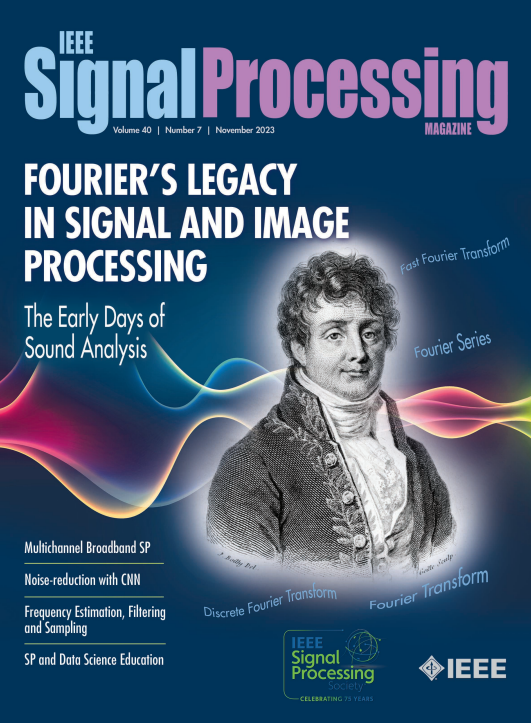真相就在那里:未知地面和非地面信号的认知感知和机会导航[综合传感和通信革命的信号处理特刊]
IF 9.6
1区 工程技术
Q1 ENGINEERING, ELECTRICAL & ELECTRONIC
引用次数: 0
摘要
在过去的几年里,人们对集成传感和通信(ISAC)产生了浓厚的兴趣,以实现大规模物联网、高度自动化的运输系统和军事监视等应用。文献中的许多ISAC研究都考虑从零开始设计具有ISAC能力的下一代系统。本文认为,“真相就在那里”,人们可以感知和利用未知信号,无论是非ISAC“遗产”还是ISAC设计的。文章提出了一个框架称为认知感知和机会导航(COSON)。COSON可以被认为是ISAC的一个实例,但是,COSON没有设计具有ISAC功能的信号的“奢侈”,而是感知任意的、未知的通信信号,并利用它们进行定位、导航和授时。COSON由四个阶段组成:1)盲信号采集,包括频谱感知和信号活动检测、盲信标估计、初始多普勒和多普勒速率估计、盲信源枚举;2)盲信号跟踪与信标细化;3)干扰与多径分类;4)传感和导航。广泛的实验结果显示,COSON广泛适用于地面和非地面源,传输各种调制和多址方案:蜂窝4G和5G信号,GPS和低地球轨道卫星(Starlink, Orbcomm和铱星)信号。COSON被证明可以定位固定天线,并在没有全球导航卫星系统信号的情况下,为无人机和地面车辆导航,达到米级精度。本文章由计算机程序翻译,如有差异,请以英文原文为准。
The Truth Is Out There: Cognitive sensing and opportunistic navigation with unknown terrestrial and nonterrestrial signals [Special Issue on Signal Processing for the Integrated Sensing and Communications Revolution]
There has been significant interest over the past few years in integrated sensing and communication (ISAC) to enable applications, such as the massive Internet of Things, highly automated transportation systems, and military surveillance. Many ISAC studies in the literature considered designing, from scratch, next-generation systems that are endowed with ISAC capabilities. This article argues that “the truth is out there” and that one can sense and exploit unknown signals, whether non-ISAC “legacy” or ISAC devised. The article presents a framework termed
cognitive sensing and opportunistic navigation
(
COSON
). COSON can be thought of as an instantiation of ISAC, but, instead of having the “luxury” of designing signals with ISAC capabilities, COSON senses arbitrary, unknown communication signals and exploits them for positioning, navigation, and timing purposes. COSON is composed of four stages: 1) Blind signal acquisition, which comprises spectrum sensing and signal activity detection, blind beacon estimation, initial Doppler and Doppler rate estimation, and blind source enumeration; 2) blind signal tracking and beacon refinement; 3) interference and multipath classification; and 4) sensing and navigation. Extensive experimental results are presented, demonstrating the broad applicability of COSON to terrestrial and nonterrestrial sources, transmitting with various modulation and multiple access schemes: cellular 4G and 5G signals, GPS, and low-Earth orbit satellite (Starlink, Orbcomm, and Iridium) signals. COSON is demonstrated to localize stationary antennas and navigate unmanned aerial vehicles and a ground vehicle, to meter-level accuracy, without global navigation satellite system signals.
求助全文
通过发布文献求助,成功后即可免费获取论文全文。
去求助
来源期刊

IEEE Signal Processing Magazine
工程技术-工程:电子与电气
CiteScore
27.20
自引率
0.70%
发文量
123
审稿时长
6-12 weeks
期刊介绍:
EEE Signal Processing Magazine is a publication that focuses on signal processing research and applications. It publishes tutorial-style articles, columns, and forums that cover a wide range of topics related to signal processing. The magazine aims to provide the research, educational, and professional communities with the latest technical developments, issues, and events in the field. It serves as the main communication platform for the society, addressing important matters that concern all members.
 求助内容:
求助内容: 应助结果提醒方式:
应助结果提醒方式:


